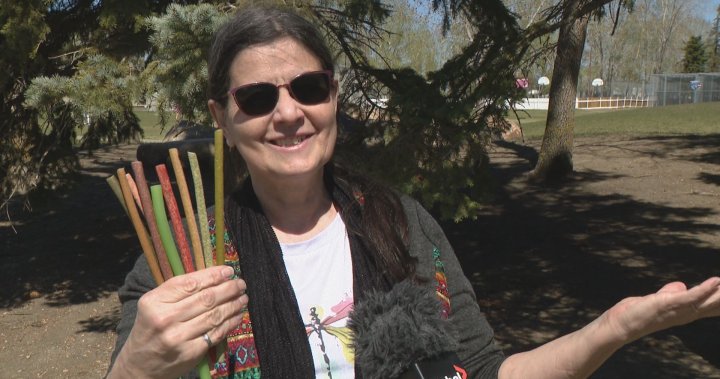Denise Stilling, a research engineer at the University of Regina, has developed a sustainable solution for the issue of mushy paper straws. By utilizing food-grade material and agricultural crop residue, she has created an environmentally-friendly straw that remains intact in drinks. Stilling, who grew up on a farm where sustainability was a priority, has been working on using agricultural waste products since she started at the university in 2005. With the help of a team of researchers, she began the project to create environmentally-friendly drinking straws just before the onset of the COVID-19 pandemic.
In 2021, Stilling received a $150,000 grant through the province’s Agriculture Development Fund for her project focused on turning agricultural crop residue into compostable products. The research explored the use of cereal and flax straw to create decomposable items such as drinking straws, stir sticks, container sleeves, and medical devices. Stilling initially considered using Polylactic acid (PLA), a bioplastic, for the project, but due to legislative bans on single-use plastics, including PLA, she opted for a more sustainable and eco-friendly solution.
Despite the popularity of paper straws following the plastic ban in Canada, Stilling highlights the negative impacts of using paper straws. She notes that the process of creating paper straws involves harmful chemicals and contributes to deforestation. Stilling recognized an opportunity to introduce her environmentally-friendly straw product to the market given the frustration with the quality of paper straws. Her company, EcoFlexPlus, is competing in the Startup TNT Investment Summit, aiming to attract investors who are seeking alternative solutions to single-use plastics in the food industry.
Startup TNT, the organization behind the investment summit, focuses on investing in high-growth and high-potential companies. With over 400 investors supporting 96 companies across western Canada, Startup TNT plays a crucial role in helping early-stage startups access funding and grow. The investment summit involves each investor committing $5,000 before hearing pitches from the participating companies. Following eight weeks of due diligence, one company is selected for investment. The top 20 contenders at the summit have the potential to become global businesses, according to Mike Woldfeld, Startup TNT Saskatchewan Lead.
Investing in early-stage startups in local communities is essential for their growth and success. Woldfeld emphasized the importance of providing financial support to startups in their early stages until they can secure larger venture capital investments. The startups selected at the summit will have the opportunity to present their final pitches on June 13, with the hope of securing investments that will enable them to scale and expand their innovative solutions. Stilling’s environmentally-friendly straw project represents a promising alternative to traditional paper straws, offering a sustainable and practical solution for the food industry and consumers alike.


